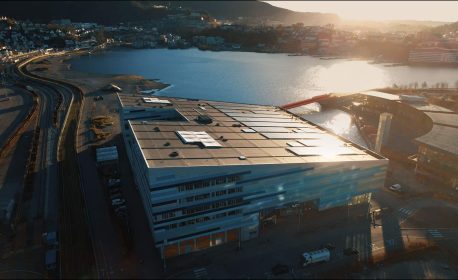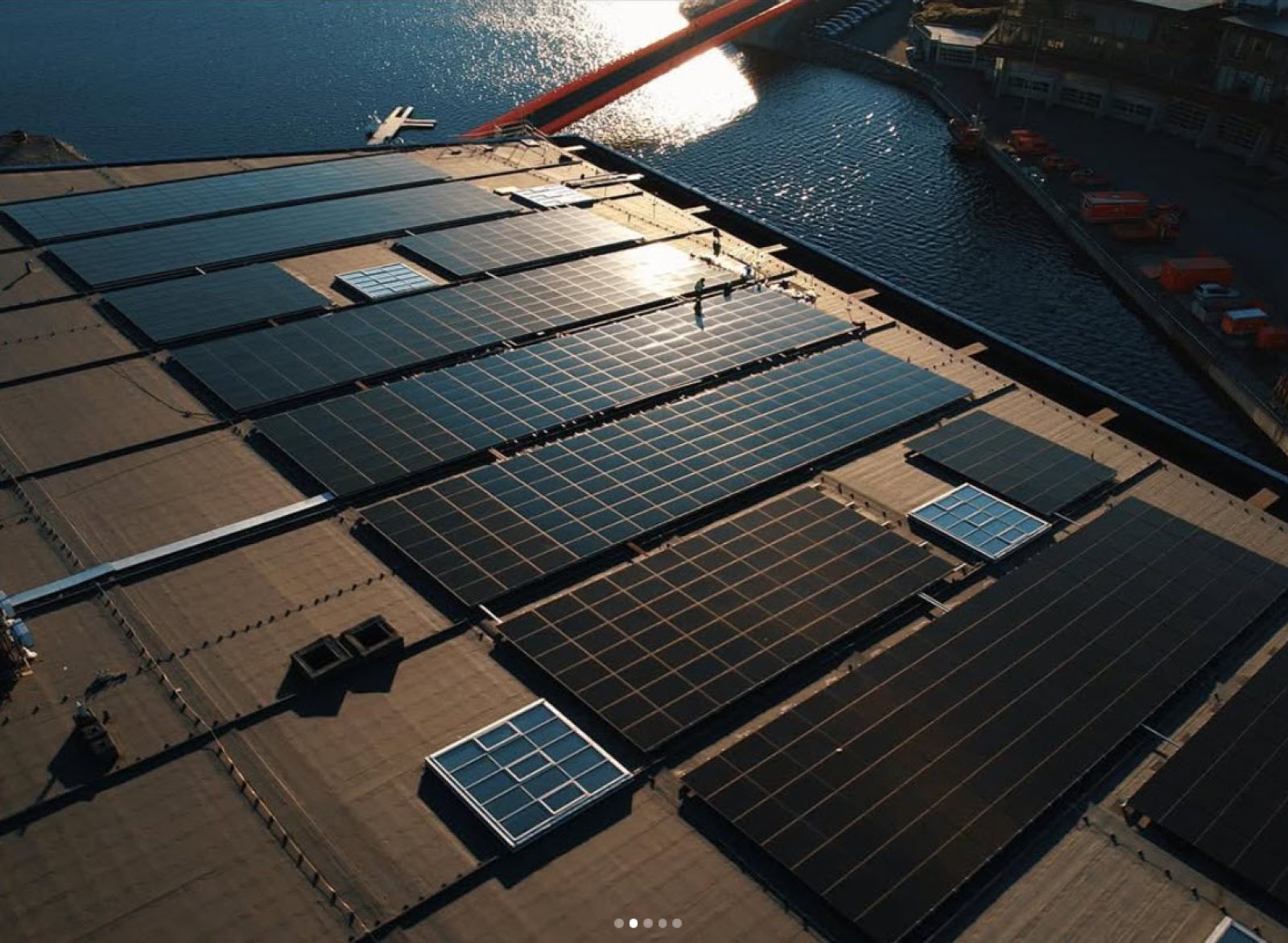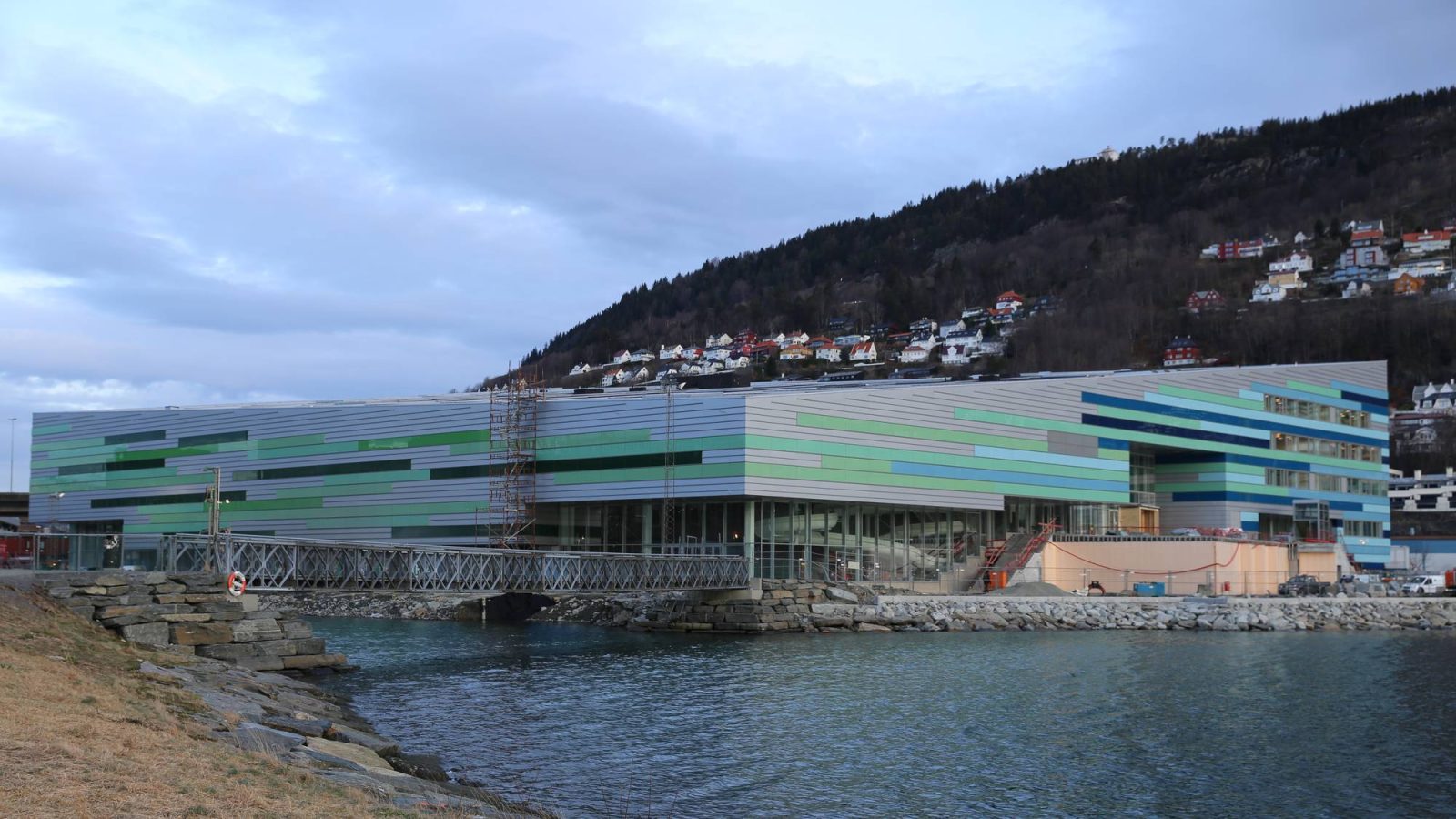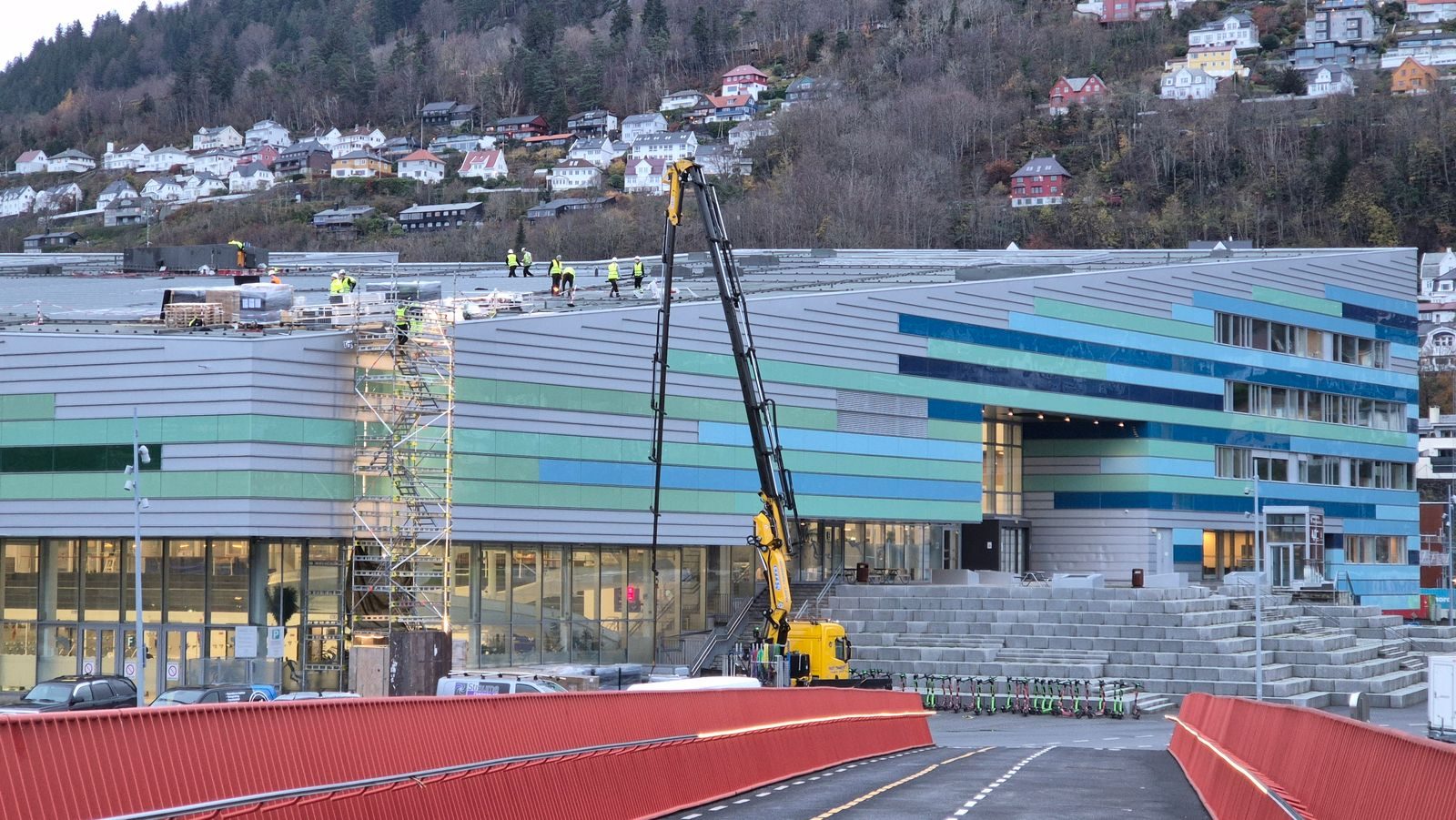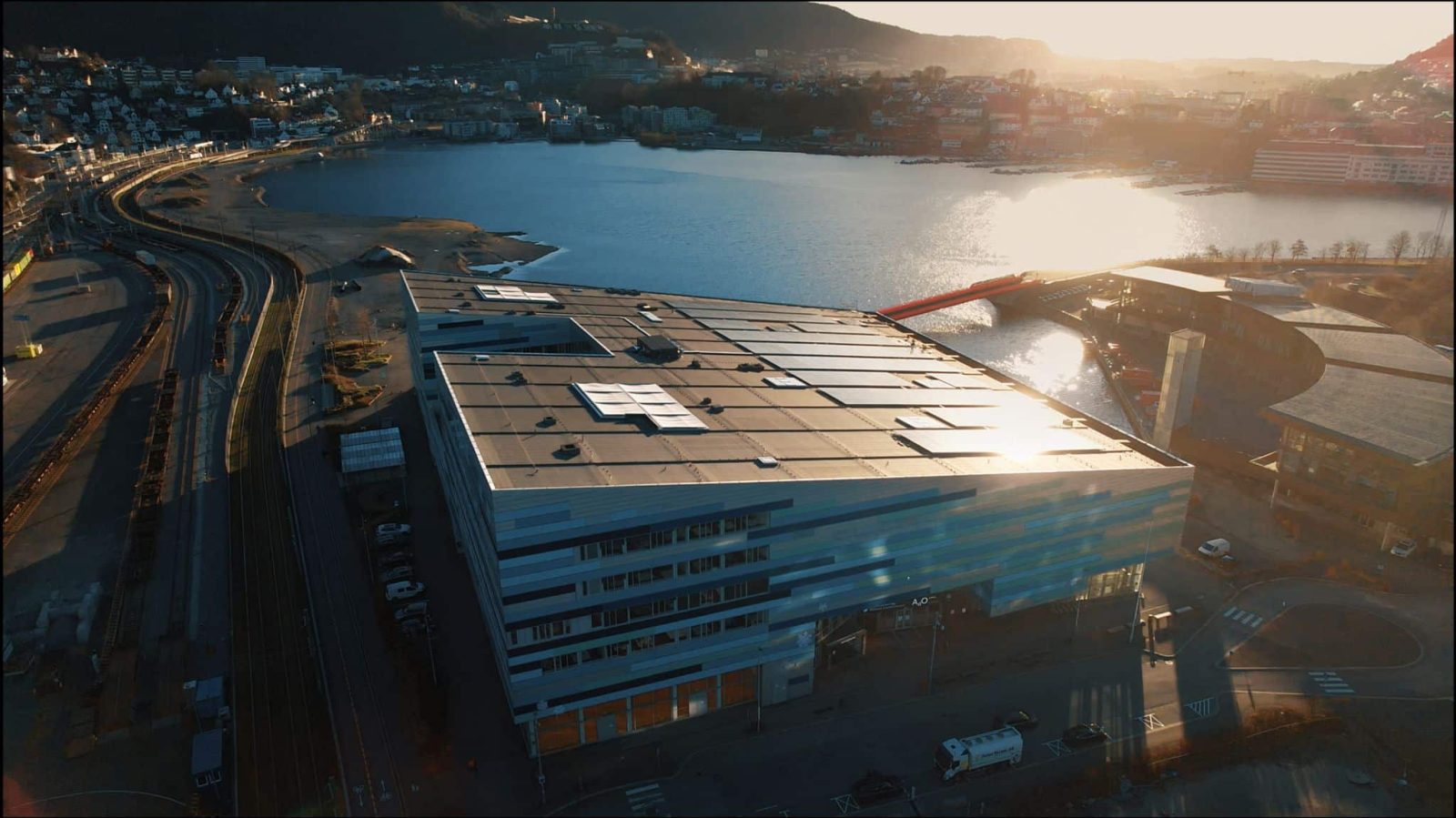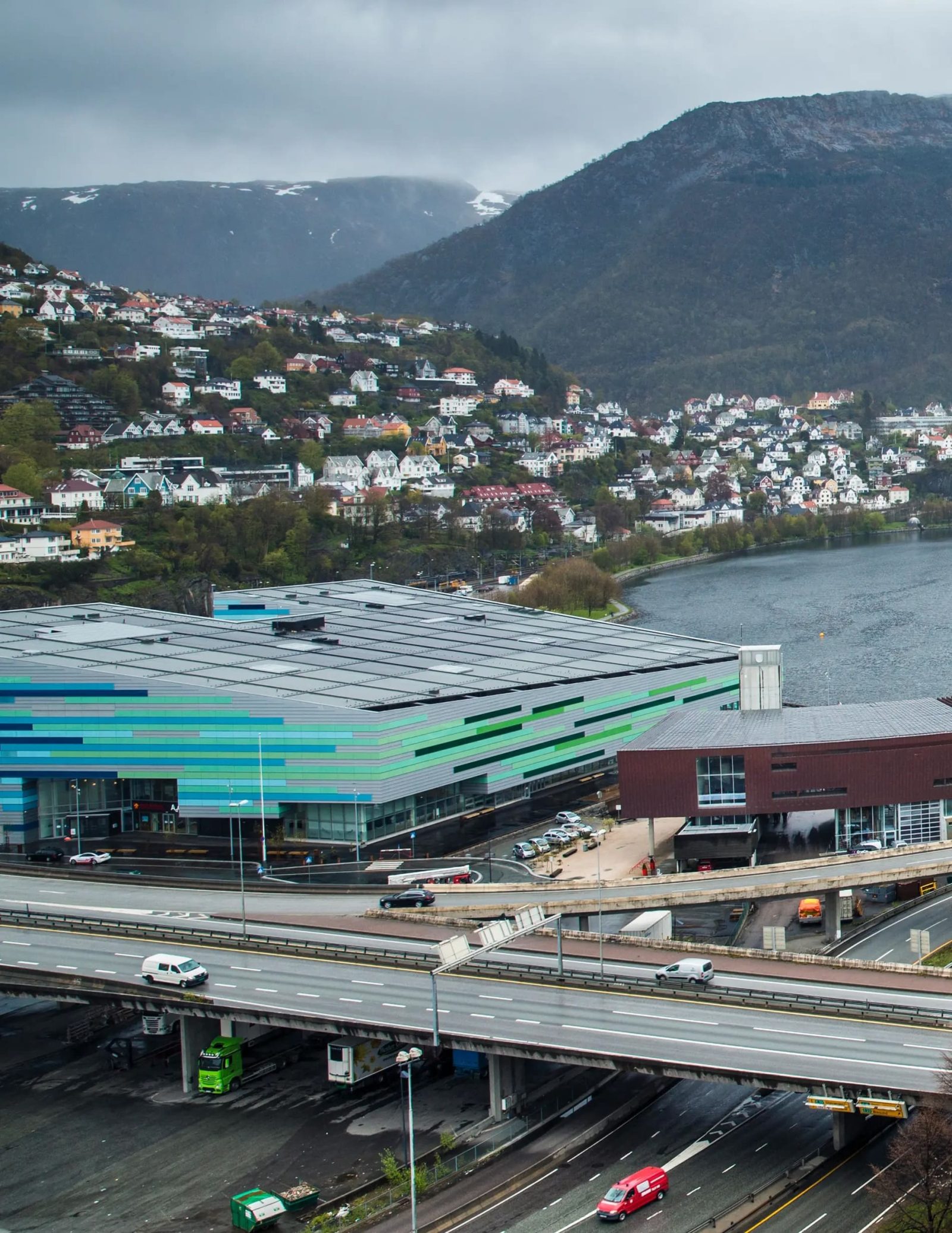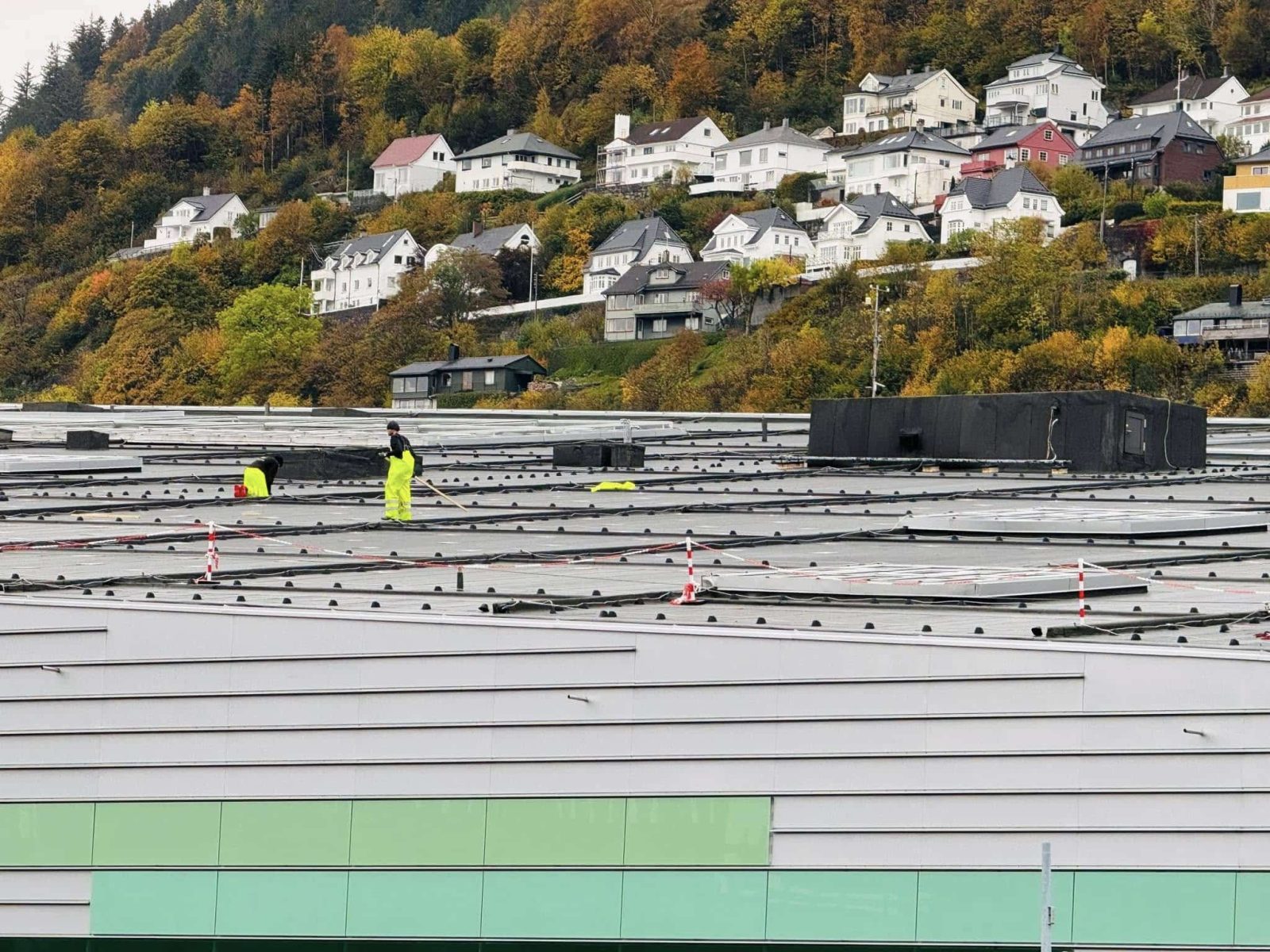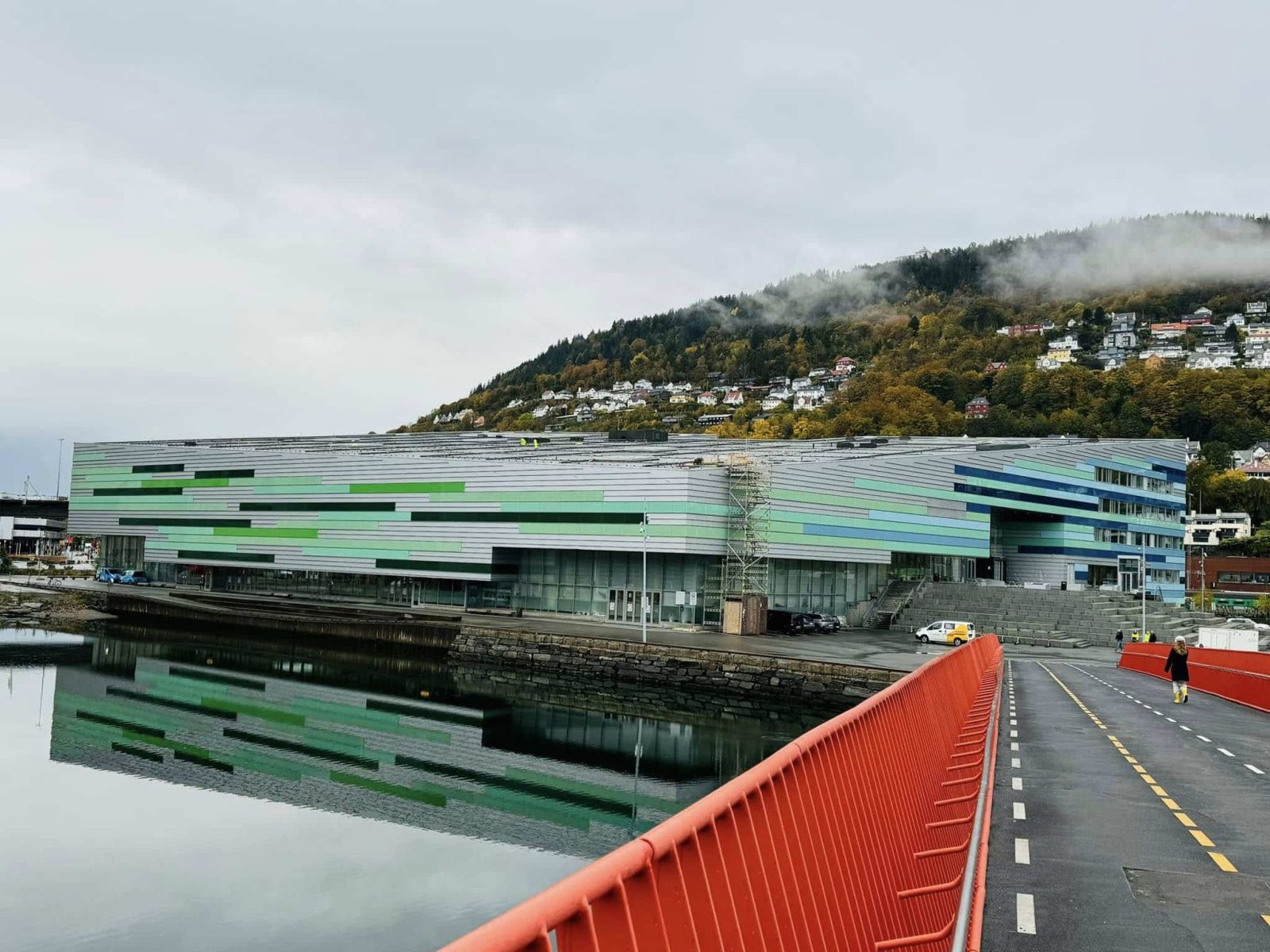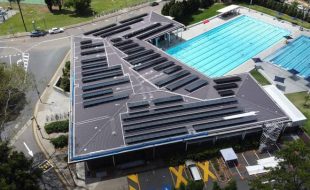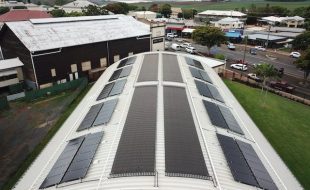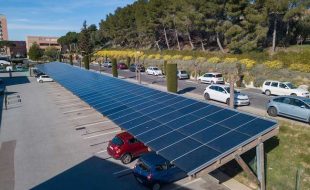This project in photos
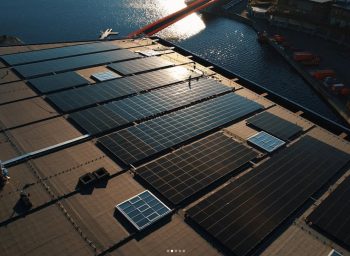
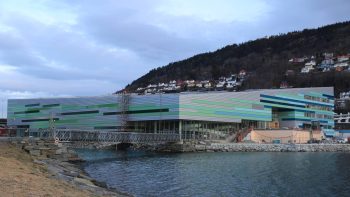
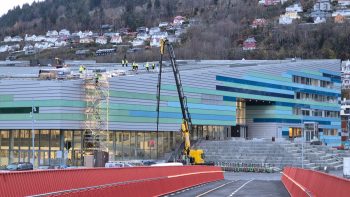

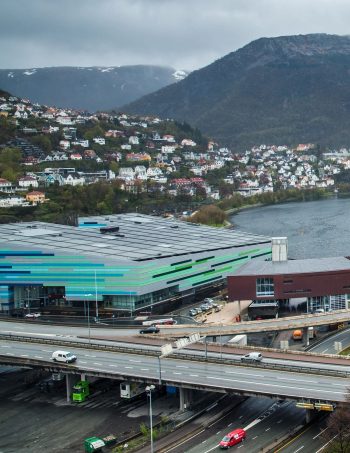
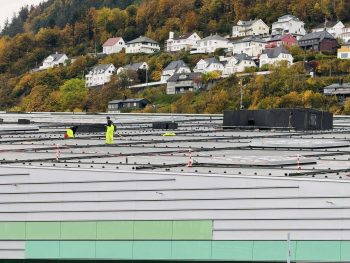
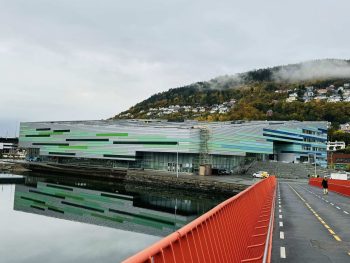
Exceptional energy performance
With an estimated annual production of more than 1 200 MWh, this installation is designed to cover a significant proportion of the aquatic centre’s energy needs. In all, this will mean :
✅ 340 000 kWh of electricity will be generated whereof 68 000 kWh by the solar hybrid panels, which will largely supply the shared infrastructure of the AdO Arena and the nearby Amalie Skram secondary school.
✅ 700 000 kWh of thermal energy generated by the hybrid solar panels to the heat pump and due to the mild coastal climate of Bergen the system will produce thermal energy 365 days a year.
In all, this will reduce CO₂ emissions by several hundred tonnes each year, significantly reducing dependence on thermal energy from combustion.
Guaranteed long-term profitability
The total cost of the project is estimated at NOK 12.5 million (around €1.1 million). It is expected to pay for itself in less then 11 years if the price of district heating remains at around 1 NOK/kWh. However, rising energy prices in Norway will ensure a much faster return on investment.
By way of comparison, the AdO Arena consumed 3.3 million kWh of heating per year. Thanks to this installation, it will be able to reduce this district heating consumption by around 36%. A substantial financial saving and a significant reduction in its carbon footprint!
Dualsun: expertise that transcends borders
This project also confirms the reliability and performance of Dualsun solutions on an international scale. Through Dualsun Nordics, our office in Sweden, we are demonstrating that our hybrid solar technology meets the climatic and energy requirements of the Nordic countries. By teaming up with local players such as Straume Elektriske and InFluit, we are guaranteeing highly relevant solutions.
A model for other facilities to follow
The AdO Arena has become a benchmark for community swimming pools, proving that aquatic centres can be real players in the energy transition. With 1.2 million kWh produced on site each year, this project illustrates how hybrid solar technologies can massively reduce the energy costs and environmental impact of energy-intensive buildings.
➡️ Other large-scale pool heating projects have also been implemented in France and Australia, including:
- 326 hybrid panels for the solar-powered swimming pool at the University of St Lucia in Brisbane, Australia
- 120 hybrid panels for a high-energy-efficiency ecological pool in Australia
- Hybrid solar installation on a canopy for a swimming center – Perpignan, France
- Solar canopy with 180 hybrid solar panels [Dalkia] – Sète, France
